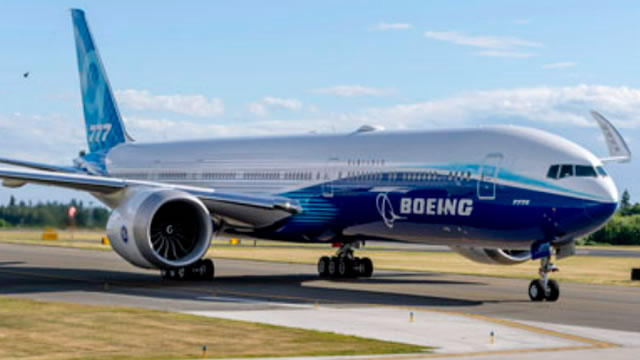China’s Decision to Halt New Boeing Orders: Implications for the Aviation Industry
In a move that could further exacerbate the financial woes of American plane maker Boeing, China’s Civil Aviation Administration has reportedly instructed domestic airlines not to place new orders for Boeing jets. This decision comes in the wake of the grounding of Boeing’s 737 Max aircraft following two fatal crashes.
Background
Boeing, an industry leader in commercial aviation, has been grappling with the fallout from the 737 Max crashes that occurred in October 2018 and March 2019, respectively. The crashes resulted in the deaths of 346 people, leading to a global grounding of the 737 Max fleet. Boeing has been working to address the safety issues identified in the crashes and secure regulatory approval for the plane’s return to service.
Impact on Boeing
The Chinese directive is expected to add significant pressure to Boeing’s bottom line. China is the world’s largest aviation market, and the country’s airlines have been major customers for Boeing. In 2018, Boeing delivered 110 aircraft to Chinese carriers, accounting for about 20% of its total deliveries that year. With the ban on new orders, Boeing stands to lose substantial business.
Impact on the Aviation Industry
The ripple effects of China’s decision are likely to be felt throughout the aviation industry. Boeing’s competitors, such as Airbus and Comac, are poised to benefit from the Chinese ban. Airbus has reportedly seen a surge in orders from Chinese airlines, with 150 aircraft ordered in 2019. Comac, a Chinese aircraft manufacturer, has also seen increased interest in its C919 jet.
Impact on Consumers
For consumers, the Chinese ban on new Boeing orders could lead to increased prices for airline tickets due to reduced competition. Moreover, delays in the delivery of new aircraft to Chinese airlines could result in operational inefficiencies and potential disruptions to travel plans.
Impact on the Global Economy
The Chinese ban on new Boeing orders could also have broader implications for the global economy. Boeing is a significant exporter, and the company’s financial struggles could negatively impact the American economy. Furthermore, the Chinese ban could lead to a shift in the global balance of power in the aviation industry, with Airbus and Comac potentially gaining market share at Boeing’s expense.
- Boeing’s financial woes deepen with Chinese ban on new orders
- China’s move could benefit Boeing’s competitors, Airbus and Comac
- Consumers may face increased airline ticket prices and operational inefficiencies
- Global economic implications, including potential impact on the American economy and the balance of power in the aviation industry
As the situation unfolds, it remains to be seen how Boeing will respond to the Chinese ban and what the long-term implications will be for the aviation industry and the global economy.
Conclusion
China’s decision to halt new orders for Boeing jets is a significant development that could have far-reaching implications for the aviation industry and the global economy. Boeing, the world’s largest plane maker, stands to lose substantial business in the world’s largest aviation market. The ripple effects of this decision are likely to be felt throughout the industry, with Boeing’s competitors poised to benefit and consumers potentially facing increased ticket prices and operational inefficiencies. The long-term implications of this decision remain to be seen, but it is clear that the balance of power in the aviation industry could shift significantly.




